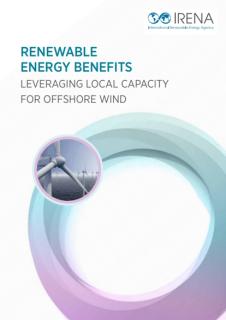
Offshore wind projects create ample opportunities for local value creation. Income and jobs can be maximised by leveraging existing economic activities and building upon domestic supply chains. Education and training, however, must be attuned to emerging needs in the offshore wind industry. The development of a typical 500-megawatt offshore wind farm requires around 2.1 million person-days of work. Manufacturing takes up 59% of the labour requirements of such a project, followed by operation and maintenance (24%), and installation and grid connection (11%). Factory workers account for more than half of the labour needed in manufacturing.
Offshore wind development benefits from synergies with offshore oil and gas, specifically in terms of skills and occupational patterns. Successful job migration between sectors, however, depends on dedicated retraining policies. Specific policy measures, such as upgrading and supplier development programmes, support for joint ventures, or industrial promotion schemes, may be needed to strengthen the industrial capacity of domestic firms.
This study analyses the potential of the offshore wind industry to participate in the energy transition through the opportunities it offers for local value creation for countries that choose to develop the technology. It outlines the requirements along the whole value chain, particularly in terms of the human resources and skills needed to produce, install, and operate plants or facilities based on a specified renewable energy technology.
